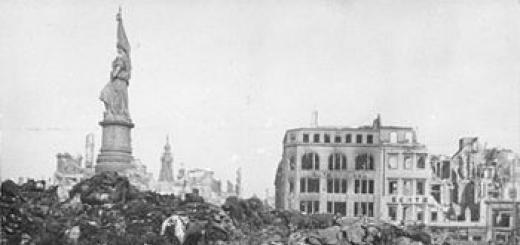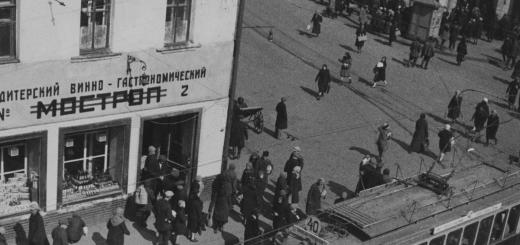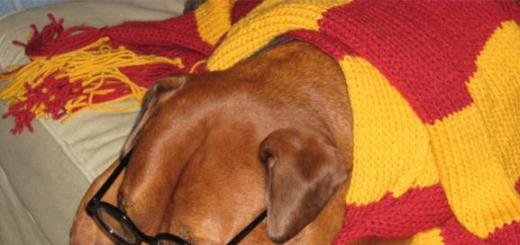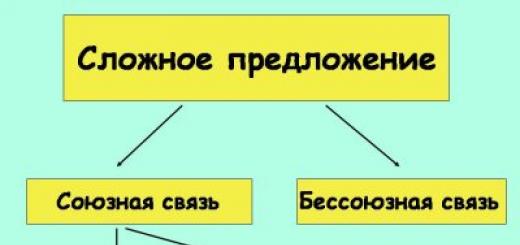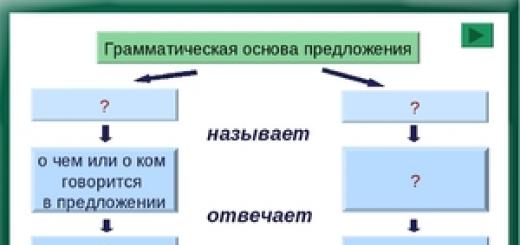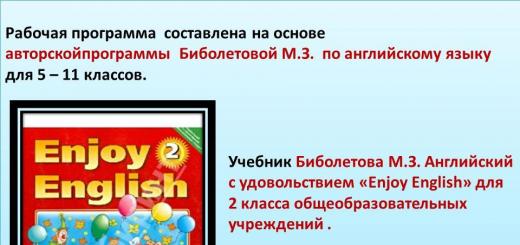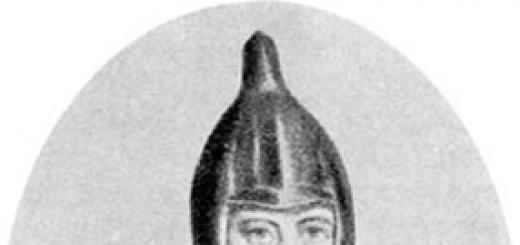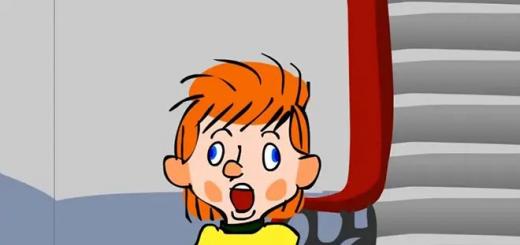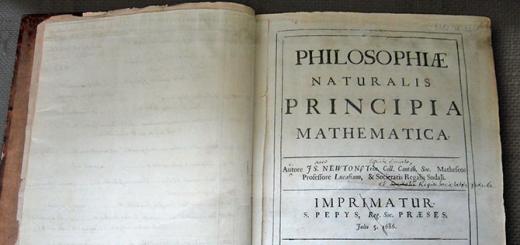What is the role of the figure of Pavel Grachev in the modern history of Russia?
Vladimir Kara-Murza
Vladimir Kara-Murza: On Sunday, at the age of 65, Pavel Sergeevich Grachev, Army General, former Minister of Defense of the Russian Federation, died. The cause of death of the ex-Minister of Defense was acute meningoencephalitis. Pavel Grachev was 64 years old. The future Minister of Defense was born into the family of a locksmith and a milkmaid in the village of Rvy, Tula Region, served in the Airborne Forces, then studied at the Frunze Military Academy. In 1981 he was sent to Afghanistan, where he served intermittently for more than 5 years. After returning from Afghanistan in 1998, he worked at the Academy of the General Staff of the USSR Armed Forces. In 1990 he was appointed deputy commander of the Airborne Forces. Pavel Grachev served as Minister of Defense from 1992 to 1996 and during all this time he was criticized by almost all political forces. In the period from December 94 to January 95, the head of the military department personally directed the course of hostilities in Chechnya. Grachev promised to restore order in Chechnya in two days with one airborne regiment. On June 17, 1996, he was dismissed from the post of Minister of Defense. From December 18, 97 to April 98, military adviser to the general director of Rosvooruzhenie.
About what is the role of the figure of Pavel Grachev in the modern history of Russia, in our program we talk with Viktor Baranets, a columnist for Komsomolskaya Pravda, a former press secretary of the Ministry of Defense, and Igor Korotchenko, editor-in-chief of the National Defense magazine. When did you meet Pavel Sergeevich, and what human qualities did he differ in?
Victor Baranets: My first acquaintance was in Afghanistan at the height of the war - it was 1986. Then Pavel Sergeevich commanded the 103rd airborne division, there were heavy battles. I then came on a business trip, and, of course, at first I was alarmed by such a respectful and loving attitude of soldiers and officers towards their commander. Then stories began that Pavel did not sit in a warm dugout, when sometimes he had to take auls, mountains, that he had been injured. In a personal acquaintance, Grachev showed me his tongue: “You see, a piece of my tongue was plucked off by a fragment.” Then I witnessed a curious detail. At the Kabul airfield, the cargo plane was completely packed with clothes, gifts were sent to Moscow generals, colonels, as always, and the officers sent their clothes. Then, I remember, it was very fashionable, the dream of a Panasonic officer to get hold of, jeans, jackets and other things were transported by officers. They brought a dozen wounded officers, and the impudent commander of the ship came out, apparently, he provided the Moscow elite and said: I have nowhere to be wounded, you see - everything is packed. Then Grachev jumped up and threw these boxes almost to Amin's palace, scattered everything, said: "These guys of mine should immediately be sent to the hospital in Kabul." This is how my acquaintance was. But I was lucky, in those days Pavel Sergeevich was awarded the rank of major general, he invited me to this party. And I remember with what officer's fury, sincerity, this officer's revel sang the song "Our combat commander, we will all follow you." I had the feeling that there was no falsehood. Indeed, he became a major general, and even the soldiers lovingly called him Pasha behind his back. This was a man who was respected, this was a man who did not hide behind the backs of the soldiers, as the famous song says. It was really a commander, a Soviet commander of a very good landing temper.
Vladimir Kara-Murza: How do you assess the reform of the armed forces, which began under Pavel Sergeevich as Minister of Defense?
Igor Korotchenko: First of all, it should be noted that Grachev ended up in the post of Russian Defense Minister by chance, by the will of fate. Shortly before the August events of 1991, he received Boris Yeltsin, they steamed together and drank several glasses of vodka, in fact, a close acquaintance of the Russian leader and one of the then promising Soviet airborne generals took place. And actually, Grachev's behavior during the August coup and then close acquaintance with Yeltsin, in fact, played the role of a springboard, thanks to which Grachev, with the outlook and mentality of the commander of an airborne division, suddenly found himself in the chair of the head of the Russian Ministry of Defense. He became the first Minister of Defense of the new Russia, of course, the burden of all those problems fell on his shoulders, which I still remember very well and which accompanied not only the process of the collapse of the Soviet armed forces, the Soviet army and navy, but also the legal formation Russian army.
First of all, I believe that Grachev's great merit is that he managed to maintain centralized control over nuclear weapons, which were located not only on the territory of the Russian Federation, but also on the territory of several former Soviet Union republics. Let me remind you that at the beginning of 1992, many post-Soviet leaders of these republics desired nuclear status for their newly proclaimed states. And I think that Grachev's great merit is that in the end, after long and difficult negotiations, everything was taken out to the territory of Russia. At the same time, not a single nuclear warhead fell into unauthorized hands, which was extremely important in those conditions.
Grachev did a lot to prevent the collapse of the armed forces. We remember that there were various candidates for the post of Minister of Defense of Russia, I remember that even Galina Starovoitova, a number of other prominent democrats and liberals from Boris Yeltsin's entourage were predicted for this position. I think that if one of them had taken the post of the first civilian minister then in the new Russia, then, probably, the armed forces would have completely lost control and controllability and they would have suffered an even sadder fate than the one that was prepared for them.
But of course, as Grachev's negative moments as Minister of Defense, I would note the first thing that he let the army be drawn into the tragic events of October 93, when, succumbing to Yeltsin's pressure, he dragged the army into internal political showdowns that led to a tank assault and attack units of the Airborne Forces of the building of the Supreme Council of Russia, and the unpreparedness of the army for military operations in Chechnya. Probably, here reproaches against Grachev are minimal, because starting from the late 20s - early 30s, in fact, our army had no more experience in suppressing an internal armed rebellion. The last such actions were to combat Basmachi. And of course, I also wanted to name as a drawback the fact that Grachev agreed with very short, I would say very cruel terms for the withdrawal of our groups from the countries of Eastern Europe, primarily from the Western Group of Forces, from Germany and from other countries of the former Warsaw Pact . As a result, the divisions were transported to an open field, where there was nothing for their deployment, accommodation, housing. And today, these once glorified units and units practically no longer exist.
Vladimir Kara-Murza: Do you agree that Pavel Sergeevich dragged the army into the events of 1993?
Viktor Baranets: Let me start by making a small statement as an officer who also took the oath. I try not to accept these talks about what Pavel Sergeevich dragged into. Pavel Grachev is subordinate to the Supreme Commander of the Armed Forces of Russia, decrees, whose orders had to be carried out. Grachev, as the Minister of Defense, as a subordinate of Yeltsin, had little choice: either as an officer to carry out the order, without discussing it, in my opinion, no one canceled the oath, decrees and charters, or submit a resignation letter. Grachev chose the second, that's his fate. And the biggest tragedy of Pavel Sergeevich, in my opinion, is that he became a loyal soldier of the Yeltsin regime. He took on this black cross and carried it as he carried it. It suffices here to recall that conversation, the ferocious conversation between Yeltsin and Grachev, when he ordered firing on the White House. And there were many witnesses that night when Pavel Sergeevich did not express enthusiasm for this instruction. There are many witnesses that night what happened. Already leaving the office, upset, pale, gnashing his teeth, Yeltsin saw that Grachev hesitated, but Grachev at the last moment turned to Yeltsin, said: “Boris Nikolaevich”, or rather, he turned: “Comrade Supreme Commander, I ask you to send me all the same written order. And then Yeltsin, gnashing his teeth, said: "All right, I'll send it to you." This is a small detail, but she says that Grachev still had responsibility, conscience, and understanding of the dirty tragedy that Yeltsin dragged him into.
Now about the Chechen war. Now, of course, many, many, especially the parents of the dead soldiers, curse and curse Grachev that he dragged the army into a civil war, in fact a war on the territory of his own state. But here the question arises: what, Grachev himself pulled troops there, he himself decided to fight Dudayev, whom he met twice on the eve of the war and persuaded him not to fight. Dudayev had already agreed, because it only remained to sit down for negotiations, which Yeltsin did not want. He did not want to sit with some shepherd, as he said, at the gilded tables of the Kremlin. And here again came the black fatal moment of truth for Grachev, he had to fulfill or not to fulfill. He is like a soldier, like an officer, like a general, he decided to act like an officer, to do whatever it takes. Yes, the army was not prepared, but I do not understand Grachev's reproaches that too many soldiers died. I do not know wars where there would be no casualties of soldiers and officers. On the other hand, the army is really ready for that operation, and let's say in our own words - a civil war against its own population, because Chechnya was and remains a Russian republic, it was Russia, even Napoleon would not have been prepared for such a war.
Remember, after all, it was 1994, that we really only pulled troops out of Europe, fled, we did not know where to place them, we still only removed weapons from the echelons, we had few units that were ready to fight with our own people . Now, of course, from the height of the present time, to say that he didn’t act like that, he didn’t fight like that. Yes, of course, Pavel Sergeevich made mistakes. Who didn't have them? I believe that Grachev is in our memory, in the history of Russia, by the way, he was the 40th Minister of Defense and, you know, in the list of a long list of ministers there was no such Minister of Defense who would conduct his first military operation in the center of the capital of the state against their own parliament. Grachev, of course, can be blamed endlessly, but there are many soldiers who, for the sake of objectivity, are ready not only to put black crosses on the memory of Grachev, but also to thank him.
Under Grachev, the army was in a difficult situation, when they did not give out salaries for 5-6 months, when officer wives cooked quinoa soup. Nevertheless, Grachev tried to support the army. Let me tell you an episode. As of February 23, we were no longer receiving salaries from the Ministry of Defense and the General Staff, only brown bread and sprats in tomato sauce were given out. And Grachev was ashamed in front of the officers, he took, ordered to get from the storerooms all the commander's watches that were in his ministerial storeroom, and he distributed to us, the officers, on February 23, said with a bitter smile: everything I can. We donated these hours to one major, sent him to the Arbat, where they sold like hot cakes at the Kazan station for foreign citizens. And we thanked Grachev that he did not forget even on our holy holiday, he gave this way to celebrate our sacred holiday, the Day of the Soviet Army, then, however, the army was already called Russian.
Vladimir Kara-Murza: We are listening to a question from Marina, a Muscovite.
Listener: Hello. You know, we are also witnesses of all these times. I think the people I talk to think that Yeltsin was lucky with Chubais, lucky with Gaidar, but very unlucky with comrade Grachev. I can't imagine that Yeltsin came up with the idea of rolling out the tank himself. And Grachev is in his character. And what did he say about Chechnya and who started the rubbish that we would take a regiment there? It was also Grachev. Well, what a life, such a life. As for watches, because we also lived at that time and we did not have commander's watches. We cleaned the streets, engineers and candidates, and we don't sit and cry. Of course, a man died, he was not a traitor, but Yeltsin was not lucky with him.
Vladimir Kara-Murza: In your opinion, is there any share of personal guilt of Pavel Sergeevich in the number of victims in Chechnya?
Igor Korotchenko: You know, it's hard to blame a person who is no longer there. But it can be said quite clearly that obviously, when planning the operation in the Chechen Republic, a number of miscalculations were made. First of all, this concerned the issues of intelligence, this concerned the issues of armament and equipment of the troops. In principle, the troops were largely unprepared for what awaited them there. Therefore, I believe that the unsuccessful New Year's assault on Grozny in the first Chechen campaign, a certain amount of Grachev's guilt here is quite obvious. In general, I can note that in terms of his personal qualities, Grachev was an honest person. Those accusations, we remember how the press furiously kicked him, not all, but part of the press, with which he did not have a relationship as Minister of Defense and which treated the minister, accused him of a number of corruption crimes and misdemeanors. From the position of the past tense, it should be noted that Grachev turned out to be an honest man, nothing stuck to his hands, and this does him honor as a general, as a leader.
At the same time, it should be noted that, while serving as Minister of Defense, he took approximately the same position in relation to the instructions that Yeltsin gave him, approximately the same as Marshal Yazov took in relation to Gorbachev. He saluted, not trying to counteract, as Marshal Akhrameev did in his time, hasty and ill-considered decisions. It is quite obvious that there was no need for a sharp withdrawal of the Russian army groups that ended up under Russian jurisdiction from the territory of the countries of the former Warsaw Pact. Germany, in principle, was generally ready for the fact that the Russian groupings of the Western Group of Forces would be there for almost ten years, while they were ready to pay the necessary money to create the actual social infrastructure for the withdrawn troops on Russian territory. However, the pressure of Kozyrev and other Western-oriented people on Yeltsin led to the fact that Grachev, in the future, receiving Yeltsin's instructions for an accelerated withdrawal of troops, nevertheless acted to the detriment of the armed forces. I repeat once again, where are the groupings, because in Germany we had several tank armies that inspired NATO with horror, because in terms of their combat equipment, in terms of combat coherence, they were the most powerful strike groups of troops, today they don’t exist, they disappeared into the Russian black soil, where they were brought out by Yeltsin and Grachev. Therefore, I think that in the activities of Pavel Sergeevich Grachev there were both positive and negative aspects. Although, in general, I must note that there were much more positive things in his work than negative ones. And most importantly, assessing him from the standpoint of past years, the most important conclusion is that Grachev was an honest man, nothing stuck to his hands. Although, of course, we understand the scale of those corruption crimes that were going on in our country in the 90s, and the fact that Grachev turned out to be clean does honor to his memory.
Vladimir Kara-Murza: What was the relationship between Pavel Sergeevich and Alexander Ivanovich Lebed?
Viktor Baranets: Before answering your question, about the opinion of our respected radio listener, who said that Yeltsin was unlucky with Grachev. My answer will be that Yeltsin was terribly lucky with Grachev, if only because in October 1993 Yeltsin would have hung on a lamppost or on a road booth, like Najibulla, if Grachev had not withdrawn the tanks and shot down the parliament - such is the salty truth of life. Yeltsin was lucky with Grachev only because this damned civil war from Chechnya did not crawl to Moscow, dear listener, where the guts of our children, grandchildren, fathers could hang out on telegraph wires. Here we are very lucky. Yes, the minister of defense was not sinless, yes, and the army was poorly prepared, it was only two years old, the commanders were not yet fired upon, there was no experience in killing their own fellow citizens in Chechnya, but it happened that way.
Now, of course, it's easy to say. Now about Swan. The relationship between Lebed and Grachev was very different. We must not forget that they served together, that they studied at the same school, for a long time they lived in parallel in the airborne troops, the commanders of divisions were almost neighboring. At first, their life developed normally and the service too. But the situation changed dramatically when Grachev became Minister of Defense, and Lebed was often used as a kind of fire extinguisher, which was thrown into Transnistria, you know, and Lebed was dissatisfied with many, many things. Lebed was more attached to the opposition wing of the Russian officers, the national patriots, one might say. And in general, by 1996, Lebed had become the figure that even to a certain extent began to dictate to the Kremlin who to appoint, who to remove from the post of Minister of Defense. You remember, Yeltsin, whose rating in 1996 was slipping to the crisis zero mark, he offered Lebed the post of secretary of the Security Council with only one condition, which Alexander Ivanovich set for him. He said: if you remove Grachev, appoint Rodionov, I will agree. And thus, it can be said that the former colleague also had a hand in pushing Yeltsin to throw "the best minister of all times and peoples" from this military-political ship of Russia.
Well, we have two outstanding figures in the history of the modern Russian army, yes, outstanding, I say this without any reproach. These were people-persons, these were people who will be very remembered by the army for their extraordinary deeds and their dislike for the regime, as Lebed frankly demonstrated, and devotion to the regime, as Pavel Sergeevich Grachev demonstrated. But you understand, here you can’t argue in some kind of lyrical-dramatic plan, argue while sitting on some kind of drunken mound. I repeat once again: the Minister of Defense of the Russian Federation Grachev was a forced figure, he was a subordinate of the President. I repeat once again, he had little choice: either click the heels of his patent leather shoes and follow the orders that Yeltsin gave, or put a report on the president's desk and tell him: Comrade Supreme Commander, I do not want to participate in your dirty game. The whole tragedy of Grachev is that he supported Yeltsin, made this choice, which forced him to follow orders and which were deeply disgusting to Grachev. I speak as a person who was closely acquainted with Pavel Sergeevich Grachev.
Vladimir Kara-Murza: In your opinion, did Pavel Grachev's reputation suffer from suspicion of involvement in the murder of Dmitry Kholodov?
Igor Korotchenko: It was a whole campaign that was launched against the Minister of Defense, it acquired the character of fierce persecution. Of course, Grachev did not give any orders to kill Kholodov. Another thing is that the Ministry of Defense was looking for the possibility of information neutralization of the flow of negativity that poured out both on the military department and personally on the Minister of Defense. Of course, Grachev was very worried about unfair reproaches and direct insults. But, nevertheless, of course, this dealt a blow to the reputation of the military department, and personally to Grachev. Because people, far from understanding the real processes that took place in the military department, were inclined to believe hasty journalistic statements and pseudo-investigations regarding corruption in the Western Group of Forces, Grachev's connection with the facts of this corruption, and so on. Although I will emphasize once again that during the withdrawal of troops from East Germany, every effort was really made to ensure that all this took place in the legal field and was not accompanied by the excesses that were in other areas of Russian reality and politics.
Vladimir Kara-Murza: We are listening to a question from Muscovite Oleg.
Listener: Good evening. I wanted to say a few words about Grachev. The fact that he threw tanks into Grozny into Chechnya, how could a normal person do this? Is it really not clear that they will all be burned there? Here you are, please, his competence. Pasha - "Mercedes" what was his name for? The fact that he withdrew nuclear weapons from the republics is not his merit, it is the merit of both Russian and Western politicians, who set conditions, it was beneficial for them, of course. And here Grachev?
Vladimir Kara-Murza: Was it Pavel Sergeevich's idea - the November tank attack on Grozny?
Viktor Baranets: You know, for a long time, like Igor Korotchenko, he served in the Ministry of Defense, and for almost 33 years in the army I was always annoyed by the ridiculous beautiful phrase that the commander is responsible for everything and the defense minister is also allegedly responsible for everything. Yes, of course, Grachev was informed about the plan of the operation in Grozny, but the direct executors were those people who brought tanks into the necks of Grozny streets, where there were very dense ambushes, where one brigade was completely laid down by Maikop. Yes, it was a tragedy, it was one of Grachev's worst failures in his ministerial career. But nevertheless, to be objective, you still need part of the blame, although it may sound defiant and cynical, still part of the blame for that tragedy is shifted onto the shoulders of those commanders who, figuratively speaking, were sitting on armor and who They planned the operation directly in the situation that had developed at that time. I do not at all remove the blame, and, you know, it is easy now to blame Grachev for the fact that we had an absurd and tragic assault on Grozny. Now, in general, all the shortcomings that were in the 4 years when Grachev was Minister of Defense can be dumped all together: poor wages, weapons, the fact that we were in the mud, in the sands, in Siberia, you can blame everything. But we must not forget at what time Grachev commanded the armed forces, we must not forget to what extent the army was ready, in fact it was dismantled, Grachev tried to put it together from the remnants of the Soviet army. We had a significant loss of combat readiness at that time. We have a huge number of officers who did not have combat experience. In general, Grachev accepted the army the way he accepted it.
And I would not want us today not to notice at least those positive features that the army noticed under Grachev. Yes, Pavel Sergeevich Grachev got into this very ugly story with the Mercedes. But you need to know why he got into it. Because the people who left Germany, who enriched themselves there with terrible force and who were followed by the military prosecutor's office, they simply, these fellow generals impudently smeared Grachev, bought him a Mercedes and dragged him into this criminal case. He cursed this damned Mercedes a thousand times, which they allegedly tried to give him, and then allegedly forged documents, which is legal. Yes, Grachev was not a child, but dizziness from success, Yeltsin's violent love, she often untied the hands of the president's favorite, which was Pavel Sergeevich. And here, of course, we must also remember the dachas, and who shouted: Pavel Sergeevich, your generals got fat and built dachas. Didn't Pavel Sergeevich admit that when he was Minister of Defense, he gathered a whole bunch of generals close to him and even the head of the office, he wanted to be awarded the rank of army general. Of course, we understood why. Grachev was a vulnerable minister of defense, it was not for nothing that Lebed said sarcastically about him that he jumped into the chair of the minister of defense, like a March cat on a fence. All this we know. With all these pluses and minuses, Grachev will go down in history. But, of course, no one will take his place in the history of the Russian army.
Vladimir Kara-Murza: We are listening to a question from Muscovite Nikolai Illarionovich.
Listener: You said such words that do not deserve the negativity of the Minister of Defense, it does not suit the Minister of Defense of such a state. You know how he started in Chechnya - drunk. 31 it's his birthday, his present, he gave himself a present, he yelled at the whole country that I was making myself a present, I would capture Chechnya in two days. On it lies the blood of children whose mothers did not wait.
Vladimir Kara-Murza: Do you think that these words addressed to Yushenkov and Kovalev that they were traitors to the motherland, were further history refuted?
Igor Korotchenko: To be precise, Grachev called them "bastards" for the traitorous position they took towards their own soldiers and their own army. I think this is a historical assessment. And in this regard, in my opinion, Grachev acted absolutely right then. As for the mistakes, yes, Grachev is guilty of those mistakes that were made during the first Chechen campaign - this is quite obvious. Because the Minister of Defense is also responsible for such responsible decisions, the decision to storm Grozny on New Year's Eve was, of course, a political decision of the Minister of Defense. Meanwhile, you can not hang all the dogs on Grachev. We know that he was a categorical opponent of solving the Chechen problem by military means, at least within the tight deadlines set for him by the Kremlin. And Grachev was an opponent of such hasty decisions that were not prepared in military-technical terms. Therefore, a share, perhaps even a large share of the responsibility for what happened at the beginning of the first Chechen war, should be placed on President Yeltsin and his closest political entourage, who actually twisted Grachev's arms and forced him to act so hastily and therefore so ineffectively in the very stratum of this war. war in Chechnya.
Vladimir Kara-Murza: We are listening to the Muscovite Ilya Efimovich.
Listener: Good evening. I wanted to ask Viktor Nikolaevich Barants, he said that Mr. Grachev was a forced person, he had a dilemma: either follow the order, or submit a resignation report. But there was a precedent, if I am not mistaken, General Vorobyov refused to obey the order and resigned. You, as I understand it, personally knew Mr. Grachev well, what prevented him from resigning at that moment - love for the benefits, understanding of pseudo-military duty, why did he at that moment, when he did not internally agree to send troops to Chechnya , not resigned?
Viktor Baranets: I answer right away: because the soldier Grachev remained Grachev, and did not smear snot, reflecting on the order of the Supreme Commander-in-Chief that Chechen armed terrorists should be rebuffed. Now it is easy to think about what choice Grachev could have had. Grachev, I repeat, is a soldier of the regime, a soldier of the president. I want to say even more that Grachev was the president's bodyguard. And he did not want to be a traitor to the aspirations and hopes that Yeltsin had placed in him. I want to take this opportunity to remember Yushenkov here, you remember that Grachev rashly called Yushenkov a bastard, I remember how Yushenkov filed a lawsuit. We have lawyers in the management of affairs, there was a big commotion, it was necessary to somehow save Pavel Sergeevich in this situation. The best connoisseurs of the Russian language were called in and day and night they puzzled over what to do with Yushenkov, because it's a shame if the Minister of Defense is fined 10 million rubles. I remember that joyful moment when a connoisseur of the Russian language called from the Institute of Russian Literature of the Russian Language and said: “Pavel Sergeevich, don’t worry, because in many stylistic parameters the “bastard” is the son of a snake, and there is nothing wrong with that.” As they say, what kind of commemoration without anecdotes, without tales, but nevertheless, I also remember this episode.
I would like to add one more fundamentally important thing. You know, today we can dump all the dead soldiers and officers who died in Chechnya into a heap and bring this mournful mass to Grachev's grave. But I'm afraid that this will be a reflection of everyday life, this is a reflection of people, yes, indeed, many of whom have lost children, nephews, husbands. But it is necessary to evaluate the figure from the height of those specific historical conditions that had developed by December 1994. I agree that Grachev was not happy to send troops into Chechnya. And if we want to operate with facts, then we need to look into the minutes of the Security Council, where Grachev's arms were actually twisted. He did not give explicit consent. Moreover, now is the time to tell the truth that for Grachev's indecision to send troops to Chechnya, he was removed from his post, he was not given a Kremlin connection for several days - this also needs to be known. And then only Pavel Sergeevich, in order to improve his reputation in front of the president, who almost called him a traitor, then he said this phrase, which he probably regretted until yesterday, this bravura phrase, this boastful phrase, unrealistic phrase. He rashly blurted out that Grozny could be taken by one airborne assault regiment. But such is life. We must evaluate the figure of Grachev strictly in terms of the military-political situation that was in Russia during the period of his rule.
Vladimir Kara-Murza: In your opinion, was Grachev's resignation from the post of Defense Minister dictated by political considerations in parallel with the resignation of Korzhakov and Barsukov?
Igor Korotchenko: I believe these are unrelated resignations. Because the resignation of Korzhakov and Barsukov was the result of the activities of Anatoly Chubais and his ability to influence Boris Yeltsin through Tatyana Dyachenko. As for Grachev's resignation, as Viktor Nikolayevich Baranets has already noted, this was the result of a compromise deal with Alexander Lebed, who came in third in the first round of the presidential election. And one of the conditions that he would call on his supporters to vote for Yeltsin was the condition of Pavel Grachev's departure from the post of Minister of Defense. At the same time, I remember very well, since I was then in fairly close and close relations with Alexander Lebed, that actually one of the motives for such a quick and hasty resignation was the report that Lebed made to President Yeltsin that Grachev was preparing some kind of conspiracy. Although in reality it was nothing more than a discussion in a narrow circle at the table of the current situation and the search for a way out of this situation. There was a leak, it was reported to Lebed, and Lebed presented it to Yeltsin as some kind of conspiracy that needed to be resolutely suppressed. And we remember that together with Grachev, the building of the Ministry of Defense on Arbatskaya Square was left by his closest associates and advisers. Therefore, fate decreed the way it decreed.
Of course, Grachev actually got nowhere, because being a very active person by nature and having tasted the delights of a ministerial post, and even such a post of defense minister, of course, he was simply out of work. To be honest, I was very hurt when a year or two ago, attending one of the anniversaries of a respected military leader, where Pavel Grachev was, speaking, Grachev uttered the following phrase: we are veterans of the armed forces. I remember I was very uncomfortable. I looked at Grachev, of course, he had aged, but all the same he was a young, healthy, strong man, and I thought: what kind of veteran are you, aren't you an old person at all? And yesterday, this tragic news made me remember this feast, Pavel Sergeevich, and still think that he was a man of a tragic and rather complicated fate. An enchanting rise and then years of oblivion, uselessness - this is how his human and military fate developed.
Vladimir Kara-Murza: In your opinion, did this biography, which ended in years of oblivion, shortened the days of Pavel Sergeevich Grachev?
Viktor Baranets: As far as I know, I met not only with Grachev, but also with people who lived next to him, whom I met, of course, for Grachev it was a very big blow. And during one interview, Grachev told me the words that he had to say either to himself or to Russia in May 1992, when his stellar takeoff happened: “I am very sorry that I agreed to become Minister of Defense.” By the way, in the memoirs of Yeltsin, and in the memoirs of Korzhakov, and in the memoirs of many Kremlin clerks, there is the same detail that Yeltsin more than once offered to become the Minister of Defense of Russia when he was sitting in the White House. You know that at one time the military committee was headed by Kobets, moreover, you probably should know that at one time Yeltsin himself was our defense minister. This is the rise, the forceful rise of Grachev, I believe that Grachev is the product of this voluntarist-adventurist crazy policy of Yeltsin himself. Grachev is, of course, a vestige of this Yeltsin policy, this arbitrariness, a man who sometimes felt no boundaries in his personnel policy. Here he liked Grachev: I am the president, you will be with me, Pasha, my bodyguard, you will be my watchman. And he broke the fate of a good officer. The army remembers the two Grachevs, of course, the army remembers Grachev and the cadet, and the division commander, and remembers the Afghan Grachev, and remembers, of course, Minister of Defense Grachev, whose fate was so tragically inscribed with black pages by the man who patronized him as Minister of Defense - This, of course, is Yeltsin.
________________________________________
Radio Liberty © 2012 RFE/RL, Inc. | All rights reserved.
Pavel Sergeevich Grachev was the most famous and scandalous Minister of Defense of the Russian Federation. He held this post from 1992 to 1996. Coming from a simple worker-peasant family (his father is a locksmith, his mother is a milkmaid), he went through a difficult path to the very pinnacle of power and did a lot to ensure that he was remembered for a long time in this post.
Achievement list
Pavel Grachev was born in the Tula region in 1948. After school, he went to the Airborne Forces School in Ryazan. Upon graduation, he served in a reconnaissance company in Kaunas (Lithuania), then on the territory of the Russian Federation. In 1981 he graduated from the Frunze Military Academy in absentia. Served in Afghanistan. For his service he was awarded the Golden Star of the Hero. Then he was listed in various command positions.
Since the end of 1990, with the rank of major general, he became commander of the USSR Airborne Forces. After 2 months, he was awarded a more appropriate rank of lieutenant general. During military service, Grachev proved himself only positively. He was repeatedly wounded, shell-shocked, participated in the testing of new equipment, made over 600 parachute jumps, etc.
Grachev's actions during the putsch
During the August events in Moscow in 1991, Pavel Grachev first carried out the orders of the State Emergency Committee. Under his command, the 106th Airborne Division entered the capital and took under guard the main objects. It happened on August 19th. After 2 days, Grachev sharply changed his mind about the events, expressed his disagreement with the GKChP about the use of force to seize power, and went over to the side of the president.
He gave the order to use "to protect" the White House heavy armored vehicles and personnel under the command of Alexander Lebed. Later, during the investigation into the GKChP case, Grachev stated that he was not going to give the order to storm the White House. On August 23, the president appointed Pavel Grachev as first deputy defense minister. At the same time, the lieutenant general was promoted. From that moment on, his career quickly took off.
As minister
In May 1992, Pavel Sergeevich became the Minister of Defense of the Russian Federation and received the rank of Army General. During an interview with a Trud newspaper correspondent, Grachev admitted that he did not consider himself worthy of such a high position (experience, they say, is not enough). But Yeltsin convinced him. In his new post, Pavel Grachev formed the entire cabinet, selecting people from those who served in Afghanistan.
The minister opposed the imminent withdrawal of troops from the Baltics, Central Asia and Transcaucasia, rightly believing that conditions should first be created for the military at home, and then they should be transferred to a new duty station. Grachev sought to strengthen the Russian army by forbidding the formation of politicized organizations in its ranks.
There were contradictory, even strange steps during his command. For example, Grachev ordered that almost half of the weapons of the Russian army be placed at the disposal of Dudayev's militants. The minister explained this by the fact that it was not possible to withdraw weapons from the territories occupied by Dudaev. A couple of years later, the separatists fired at Russian soldiers with these machine guns.
Attitude towards Grachev
At first, the personality and actions of Pavel Sergeevich did not cause much debate. In 1993, the attitude of the opposition towards the minister changed dramatically. After the October riots in Moscow, Grachev clearly demonstrated that he was ready to raise an army against the civilian population. Shortly before that, he stated the exact opposite: the army should not interfere in the solution of internal political conflicts.
Grachev opposed the introduction of troops into Chechnya. For this he was criticized by both Chernomyrdin and Yeltsin himself. At the same time, the minister personally led the fighting in Chechnya, and rather unsuccessfully. After several crushing defeats he returned to Moscow.
Grachev was heavily criticized for many of his actions and statements. For example, at the beginning of the Chechen war, he threatened to restore order in Chechnya in two hours with one parachute regiment, and when asked how much time he needed to prepare, he answered: "Three days."
In January 1995, Grachev said that "eighteen-year-old boys" in Chechnya were dying "with a smile", referring to the dead Russian soldiers.
In 1993, in order to relieve himself of responsibility, he asked Yeltsin for written permission to open fire on the White House if necessary. After the Grozny "successes" Grachev began to advocate the gradual reduction of the army and its transfer to a contract basis.
Scandals
In 1997, Pavel Grachev was appointed advisor to the general director of Rosvooruzhenie. The following year, he became an adviser to the general director of the Rosoboronexport company. In 2007, Grachev was fired from his last post due to the "abolition" of this and some other posts.
One of the loudest scandals was the case of corruption in the top military leadership of units located in Germany. It was in the early 90s. Alexander Lebed said that Grachev was involved in this case and acquired several Mercedes abroad with the money obtained by dishonest means. In this case, Grachev was not held accountable, but he did not dispute his guilt in any way.
The personality of Pavel Sergeevich Grachev is known to most people interested in politics. He held a high position in the most difficult time for the country, devoted most of his life to military activities. In order to learn about the biography of Grachev Pavel Sergeevich, as well as to get better acquainted with the successes in the career of a military man, you just need to familiarize yourself with the material of the article.
Youth
Pavel Sergeevich Grachev was born on the first day of the new year 1948. The place of his birth is a small village near Tula. The family of Pavel Sergeevich was the simplest: his father, Sergei Grachev, worked as a mechanic at a factory, and his mother was a milkmaid in his native village.
Education
In 1964, Pavel Sergeevich Grachev graduated from school with success, and the following year he entered the Airborne Forces School, which is located in Ryazan. Upon graduation, in 1969, Grachev was awarded a gold medal in several specialties. In 1978, already an experienced military man, Pavel Sergeevich attended a course of lectures at the military academy, which bears the name of Mikhail Vasilyevich Frunze. He also graduated with honors. After graduation, Grachev was sent to Afghanistan.
The beginning of a military career
Since 1969, for several years, Grachev commanded a reconnaissance platoon of the Airborne Division, located in the city of Kaunas, which is located in Lithuania. For the next four years, Pavel Sergeevich commanded a company of cadets at the Ryazan Airborne Forces School, and until 1978 Grachev was in the position of commander of a training battalion.
Military activities after the fighting in Afghanistan
Grachev returned to the USSR in 1983 after participating in the Afghan armed conflict, where he held the position of deputy commander, and later he himself began to command a guards regiment. Pavel Sergeevich was sent to Kaunas, where he served as chief of staff. Good service was appreciated: in 1984, Grachev received the rank of colonel ahead of schedule, and in November 1986 he was given a new rank - major general.
Awards and titles
In May 1988 Grachev Pavel Sergeevich was awarded the title of Hero of the Soviet Union. Grachev received this honorary award for the fact that the combat mission under his strict guidance was completed with minimal human losses, in particular, Pavel Sergeevich showed himself well in the most difficult military operation "Magistral".

Participation in the August coup and further promotion
August 20, 1991 Grachev received an order to send troops to Moscow to protect the most important objects. He fulfilled this order by sending the Tula 106th Airborne Division to a combat mission. On August 23, Pavel Sergeevich was appointed First Deputy Minister of Defense of the USSR. At the beginning of November of this year, in connection with the resignation of the Cabinet of Ministers, he began to perform duties related to defense issues. Grachev believed that it was necessary to create a common defense system for the CIS countries.
April 1992 was marked by another high appointment of a serviceman, this time he became the Deputy Minister of Defense of Russia. His duties included control over military units under the jurisdiction of the Russian troops. In May 1992, Pavel Sergeevich was appointed army general. The first army general in the history of the Russian Federation.

Minister of Defense of the Russian Federation
The promotion went by leaps and bounds. On May 18, 1992, Pavel Sergeevich took over as Minister of Defense. Most of the higher ranks in the ministry Grachev distributed to his colleagues in Afghanistan. He opposed liberties in the army, considered unity of command the only possible option for doing business in the armed forces. He banned the All-Russian Officers' Meeting and the trade union of military personnel, which caused indignation of the military.
In June 1992, Grachev's decision to transfer half of all weapons belonging to the Soviet army to the Chechen politician Dudayev caused a great resonance. Pavel Sergeevich called this forced measures, since the weapons actually already belonged to the militants, and there was no way to take them out. This situation had a very negative impact on the military clash that happened two years later, when Russian soldiers were fired from the transferred weapons.
Pavel Sergeevich Grachev supported Russian President Boris Yeltsin, which caused a sharply negative attitude from the opposition. On October 3, riots took place in Moscow, during which Grachev, despite his statements that the army should only perform the functions of protecting the Motherland and not interfere in the internal affairs of the State, brought troops into the city, who stormed the parliament building.
Pavel Sergeevich repeatedly admitted that he was opposed to the entry of Russian troops into Chechnya, but Yeltsin and Chairman of the Council of Ministers Chernomyrdin did not share his opinion. The management of military operations in Grozny did not end very well, and Grachev returned to Moscow. Since then, he has been subjected to even greater criticism not only from opposition groups, but also from former associates.

The activities of Pavel Sergeevich after the end of his military career
In December 1997, Grachev added another position to his track record, becoming an adviser to the general director at the large Rosvooruzhenie company. In 2000, Pavel Sergeevich was elected president of the Airborne Forces - Combat Brotherhood Foundation. Since 2007, he worked as an adviser to the general director at the radio plant named after A. S. Popov. In the same year, he was transferred to the reserve.
Investigations and allegations
Secretary of the Security Council A. Lebed said that the embezzlement committed by Grachev became the cause of the armed conflict in Chechnya. The media actively supported this position of Lebed and accused Pavel Sergeyevich of repeatedly illegally purchasing expensive cars. Grachev himself did not refute this information in any way, but he was not involved in the investigation either.
In October 1994, the murder of journalist Dmitry Kholodov was committed, in which Grachev was suspected. In addition to Pavel Sergeevich, some officers were accused in the case. All the defendants were acquitted, and the crime was never solved. The investigator of the investigative department of Shchelkovo about Grachev Pavel Sergeevich recalled that during interrogations the former defense minister was very confident, which confused even experienced policemen. The investigator did not understand the nature of such confidence: either Grachev really had nothing to hide, or he knew that serious evidence would never be found against him.

last years of life
On the night of September 11-12, Grachev entered the cardiology department of the intensive care unit of the hospital. Vishnevsky, which is located in the city of Krasnogorsk near Moscow. Pavel Sergeevich died on September 23, 2012. The media called the cause of death of Grachev Pavel Sergeevich a severe hypertensive crisis, and according to one version, it could be poisoning. The official report of the Russian Ministry of Defense said that the real cause of Grachev's death was acute inflammation of the brain. He left behind a wife and two adult children.

- The number of wounds and shell shocks Pavel Sergeevich Grachev received during his service is amazing: he was shell-shocked eight times and received about ten wounds.
- Despite the fact that the official date of birth of Pavel Sergeevich is January 1, 1948, he stated that he was born on December 27, 1947.
- During his military service, Pavel Sergeevich made an amazing number of parachute jumps - 647 times he jumped from an airplane.
- Pavel Sergeevich Grachev became the youngest army general in the history of Russia. This title was awarded to him at the age of 44.
- In 1993, Grachev participated in the finalization of the new constitution of Russia.
- Pavel Sergeevich believed that the army should be formed according to a mixed principle and a contract basis should be introduced.
- It is interesting that there is a full namesake of the Minister of Defense of the Russian Federation, a member of the board of directors of the Polyus Gold company - Grachev Pavel Sergeevich, the biographies of these famous men are often confused due to the same names. Such confusion has repeatedly created awkward situations. So, in an article about the director of Polyus Gold, Grachev Pavel Sergeevich, a photograph of his namesake, a military man, was posted.
As you know, only descendants can judge the role of a person in history. Therefore, today no one can say with certainty whether Grachev Pavel Sergeevich was right when he performed certain actions at a time when he held the most important government posts and gave orders on which the fate of thousands of people depended. At one time, his brilliant career aroused the envy of many colleagues, while many often forgot what the first Russian had to go through before he got into the highest echelons of power.
Childhood and early years
Grachev Pavel Sergeevich was born in January 1948 in the village of Rvy, in the Tula region. His father was a simple mechanic, and his mother was a milkmaid. The future military leader was a fidget and showed interest in sports, and most of all he liked basketball. After graduating from 11 classes, he entered the famous RVVD command school, deciding to forever connect his life with the army.
The young man studied diligently and more than once received the praise of commanders. In 1969, Grachev Pavel Sergeevich received a diploma with honors, and he was awarded the rank of lieutenant and the qualification of a referent-translator.
Service in the ranks of the USSR Armed Forces
Grachev Pavel Sergeevich, whose biography and career until 1980 were quite typical for young military men who were his peers, at the age of 21, he was appointed to the post of commander of a reconnaissance platoon in one of the units stationed on the territory of the Lithuanian SSR.
Then for four years he was sent to serve in his native Ryazan school, where he held various positions and worked directly with cadets. In 1975, Grachev became the commander of the training battalion of the 44th training airborne division, and in 1978 he continued his education at the Military Academy. M. V. Frunze.

Afghanistan
The end of Pavel Grachev's studies at the Academy. M. V. Frunze coincided with the beginning of the last local war in the history of the USSR. The young promising commander, who showed great promise, was immediately sent to Afghanistan, where he spent the next three years. During this period, he continues his career growth, and after returning to his homeland, he is ahead of schedule awarded the rank of colonel.
1985-1991
The second trip of Pavel Grachev to Afghanistan ends with the withdrawal of the limited contingent of Soviet troops, which also included the 103rd Guards Airborne Division under his command.
In commemoration of the merits of the military leader during military operations in May 1988, he was awarded the title of Hero of the Soviet Union. Following the old saying “Live for a century - learn for a century”, Grachev Pavel Sergeevich again goes to study and enters the Military Academy of the General Staff, after which he is appointed to the post of deputy, and then the USSR.

Transfer to Yeltsin's team
The turning point in Grachev's biography was after which he had to make important political decisions more than once. In particular, he, along with Generals Gromov and Achalov, refused to submit to the State Emergency Committee and ordered his subordinates to take the White House under their protection. Upon the return of M. Gorbachev from the Crimean Foros, Grachev was appointed first deputy, and a few days later he was awarded the rank of colonel general.
The career growth of the military leader did not stop there. In particular, in May 1992, Boris Yeltsin signed a decree according to which Pavel Sergeevich Grachev was appointed Minister of Defense of the Russian Federation, whose photo has repeatedly appeared on the pages of newspapers in connection with operations in local conflict zones on the territory of the former USSR.

Chechen War
Until now, disputes about the role played by Grachev Pavel Sergeevich (Hero of the Soviet Union) during the events in the Caucasus in the first half of the 90s have not subsided. In particular, he was subjected to fierce criticism, since in June 1992 he ordered to transfer to Dzhokhar Dudayev half of all weapons belonging to the Russian army, which were stored in Chechnya. According to Grachev, the ammunition still could not be taken out. However, the fact remains that after only two and a half years these weapons were used against Russian soldiers.
At the same time, in 1994, Grachev did not manage to avoid a conflict with Yeltsin, who considered that a week was enough time to muster military forces and enter Chechnya. An experienced commander tried to reason with the president that this was too short a time, but they did not listen to him. Pavel Sergeevich even met in Chechnya with the heads of the so-called Ichkeria, before the Russian troops entered their territory, but, unfortunately, this did not give any results.

The military leader retired at the age of 59 and took up social activities. Prior to that, he was actually betrayed by Yeltsin - in accordance with the latter's pre-election agreements with General
Personal life
Throughout his life, Pavel Grachev had a reliable rear. His wife, Lyubov Alekseevna, knew with him all the hardships of the fate of an officer's wife, with her eternal moving and exhausting expectations of her husband from dangerous business trips. In addition, there were many rumors about her husband's infidelity, but Lyubov Alekseevna did not believe them, and Pavel Sergeevich Grachev always remained her only love.
The military leader's family suffered the loss of their beloved husband and father, who died in September 2012 at the age of 64.

